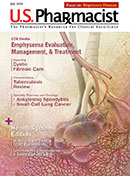In a study published in the Journal of the American College of Cardiology: Clinical Electrophysiology, researchers sought to characterize the correlation between sleep quality each night and the risk of a discrete atrial fibrillation (AF) episode.
The authors wrote, “Chronic sleep disruption is associated with incident atrial fibrillation (AF), but it is unclear whether poor sleep quality acutely triggers AF.”
For this study, researchers included patients with symptomatic paroxysmal AF in the I-STOP-AFIB (Individualized Studies of Triggers of Paroxysmal Atrial Fibrillation) trial who reported sleep quality on a daily basis. Participants were also questioned daily regarding AF episodes and were provided smartphone-based mobile ECGs (KardiaMobile; AliveCor).
The participants rated their sleep quality each night as either “amazing,” “good,” “average,” “bad,” or “horrible” and utilized mobile ECGs to measure AF episodes the following day.
The researchers noted that in 15,755 days of data from 419 patients, worse sleep quality on any given night was associated with a 15% greater odds of a self-reported AF episode the next day (odds ratio [OR]: 1.15; 95% CI, 1.10-1.20; P <.0001) after adjustment for the day of the week.
They also indicated no statistically significant correlations between worsening sleep quality and mobile ECG–confirmed AF events were observed (OR: 1.04; 95% CI, 0.95-1.13; P = .43), although substantially fewer of these mobile ECG–confirmed events may have limited statistical power. Poor sleep was also linked with longer self-reported AF episodes, with each progressive category of worsening sleep associated with 16 (95% CI, 12-21; P <.001) more minutes of AF the next day.
The authors indicated that treating the underlying cause of AF is critical, and strategies to improve general sleep may be beneficial.
Based on their findings, the authors concluded, “Poor sleep was associated with an immediately heightened risk for self-reported AF episodes, and a dose-response relationship existed such that progressively worse sleep was associated with longer episodes of AF the next day.”
Lastly, the authors added that this data implies that sleep quality may be a potentially modifiable trigger significant to the near-term risk of a discrete AF episode.
In an interview, one of the study authors, Gregory M. Marcus, MD, MAS, a cardiologist and electrophysiologist at University of California San Francisco Health, stated. “Treating insomnia can be challenging, but in many cases, there are things within an individual’s control that can meaningfully improve sleep quality.”
The content contained in this article is for informational purposes only. The content is not intended to be a substitute for professional advice. Reliance on any information provided in this article is solely at your own risk.
Related CE
$6.97 Per CE Exam or $59 for 12 Lessons





